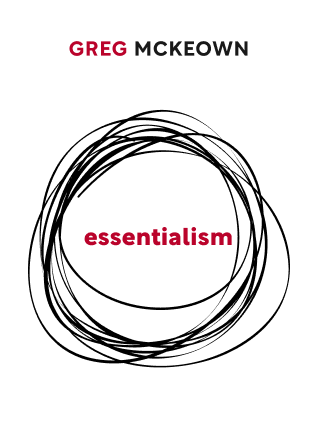

This article is an excerpt from the Shortform book guide to "Essentialism" by Greg McKeown. Shortform has the world's best summaries and analyses of books you should be reading.
Like this article? Sign up for a free trial here .
Do you celebrate your small wins? Or do you wait until you achieve a significant breakthrough? Why is it important to every success, no matter how small?
A popular 1968 Harvard Business Review article reported that people are motivated by achievement and progress, even if it’s small. When you celebrate small wins, you create momentum and build confidence in further success.
Read about why it’s important to celebrate small wins and how it can help you achieve your big dreams.
Why Is It Important to Celebrate Small Wins?
The best way to achieve a big goal is to start chalking up small wins in areas that are essential and celebrate progress, no matter how small.
When you celebrate small wins, you propel yourself towards the next win, building momentum until you achieve a significant breakthrough.
The Richmond Police Department reduced criminal behavior among young people by celebrating small wins. When they “caught” a young person doing something good — wearing a bike helmet, or picking up litter, for instance — police would give them a “ticket” redeemable for a reward, such as a movie pass. The rewards motivated more good behavior.
In your personal life, you can make significant progress toward your goals by building momentum with small wins. For example, the author and his wife wanted to reduce their children’s screen time. Rather than dictating time limits, they gave their children ten tokens each week that could be traded for screen time or money. A child could earn an additional token for spending 30 minutes reading a book, which could also be traded for screen time or money. The children’s screen time dropped 90 percent and reading increased by the same amount. The system of rewarding small changes worked effortlessly, achieved its goals, and the parents saved the time they had spent policing screen time.
Here are some techniques for creating similar effortless systems:
1) Determine your minimal viable step: In conceiving new products, entrepreneurs seek the simplest product a customer will find valuable — the minimal viable product. The idea is to avoid wasting resources on nonessential features. You can apply the principle by determining the smallest amount of progress that will be useful in accomplishing your essential task.
2) Apply minimal viable preparation: To accomplish your essential task, start early and start small. Start as soon as possible with the minimal time investment necessary to make progress. For example, you could invest a small amount of time in a project two weeks before the deadline and it could help you avoid stress later.
3) Visually depict progress: Whether it’s fundraising thermometer charts or star charts for chores at home, kids and adults like to see their progress toward a goal. As a motivator, try keeping visual track of your progress on a project.

———End of Preview———
Like what you just read? Read the rest of the world's best book summary and analysis of Greg McKeown's "Essentialism" at Shortform .
Here's what you'll find in our full Essentialism summary :
- How to do less but to do it better
- Why you need to be disciplined in your pursuit of less
- How you can learn to say no






